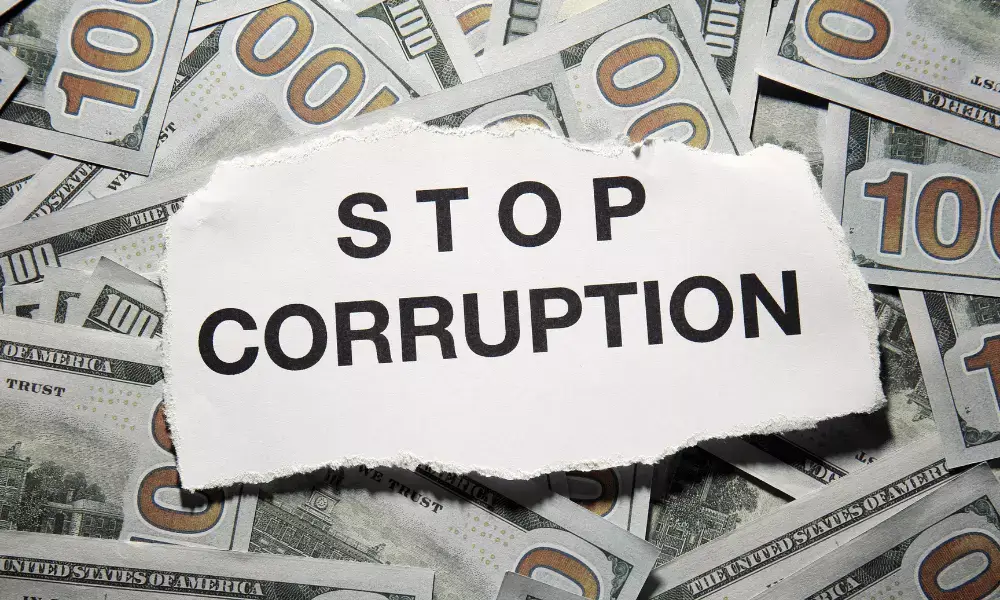In the intricate tapestry of societal dynamics, a profound narrative unfolds—one that intricately weaves together the threads of corruption and human rights. This complex and often paradoxical relationship poses a significant challenge to the foundations of justice, threatening the very essence of human rights globally. Join us on this exploration as we dissect the multidimensional aspects of this intricate interplay, shedding light on its profound implications and unveiling potential avenues for transformative change.
The Ethical Compass: Human Rights as a Foundation
Human rights emerge as the ethical compass guiding societies toward justice and fairness. These fundamental entitlements—encompassing the freedom to live, express, and learn—form the bedrock of a world aspiring to uphold the inherent dignity of every individual. The recognition and protection of human rights constitute the essence of an equitable and compassionate society, establishing a standard by which governments, institutions, and individuals are held accountable. At its core, human rights advocate for the creation of a world where individuals can thrive, unrestricted by discrimination or oppression.
Corruption: The Silent Underminer
In stark contrast, corruption stealthily emerges as a silent and insidious force, eroding the foundations of justice. From covert transactions to grand-scale embezzlement, corruption diverts resources away from the collective good, fostering an environment of inequality and injustice. It transcends financial misconduct, morphing into an assault on human dignity, particularly affecting marginalized communities. The corrosive impact of corruption extends beyond immediate financial losses, seeping into the very fabric of societal trust and cooperation. Institutions tainted by corruption become breeding grounds for injustice, perpetuating a cycle where power is wielded for personal gain rather than the common good.
Intertwined Repercussions: A Self-Perpetuating Cycle
The repercussions of corruption and human rights violations often intertwine, creating a self-perpetuating cycle. Corrupt practices deprive communities of essential services, hindering the realization of basic rights. Simultaneously, the erosion of human rights creates an environment where corruption can thrive unchecked. This interplay magnifies existing disparities, leaving communities vulnerable to exploitation and perpetuating systemic injustice. Breaking this cycle demands a holistic approach that addresses both the symptoms and the root causes of corruption and human rights violations. It necessitates not just reactive measures but a proactive commitment to fostering transparency, accountability, and a culture that values the dignity of every individual.
Addressing Corruption and Human Rights: A Global Challenge Requiring Collaboration

This troubled relationship transcends geographical boundaries, presenting itself as a global challenge that demands collaborative efforts. International organizations, governments, and engaged citizens play a crucial role in tackling corruption and upholding human rights on a worldwide scale. Recognizing that issues of corruption and human rights violations are interconnected underscores the need for a united front against these challenges, fostering a global ethos of accountability and justice. Shared responsibility becomes imperative in creating a world where justice is not confined by borders but is a universal standard upheld by a collective commitment to fairness and integrity.
Inspiring Narratives: Struggle and Triumph
Amongst the challenges lie inspiring narratives of struggle and triumph. Activists, non-governmental organizations, and heroic individuals stand as defenders, pushing for accountability, transparency, and systemic changes that dismantle the structures enabling corruption. Their endeavors embody the resilience of the human spirit when confronted with adversity, offering a glimmer of hope in the face of systemic challenges. These stories underscore the power of collective action and the transformative impact that individuals and communities can have when they unite against corruption and human rights abuses.
Education and Awareness: Potent Tools for Change
Education and awareness emerge as potent tools in this battle. Empowering individuals with knowledge about their rights and the consequences of corruption equips society to challenge corrupt practices and demand a higher standard of governance. It is a journey toward enlightenment, reshaping the narrative of power dynamics and fostering a collective consciousness that actively resists corruption and defends human rights. Education becomes a vehicle for empowerment, enabling individuals to navigate complex systems, advocate for their rights, and contribute to the broader movement for justice and fairness.
Towards Positive Change: Unraveling the Relationship between Corruption and Human Rights
Acknowledging the intricate relationship between corruption and human rights marks the initial step toward positive change. By fostering awareness, supporting initiatives against corruption, and advocating for the protection of human rights, we contribute to a collective effort that aims to weave a world where justice, fairness, and dignity triumph over the entanglements of exploitation and injustice. In this transformative journey, the interwoven threads of corruption and human rights can be unraveled, paving the way for a just and equitable future that respects the inherent worth of every individual.





